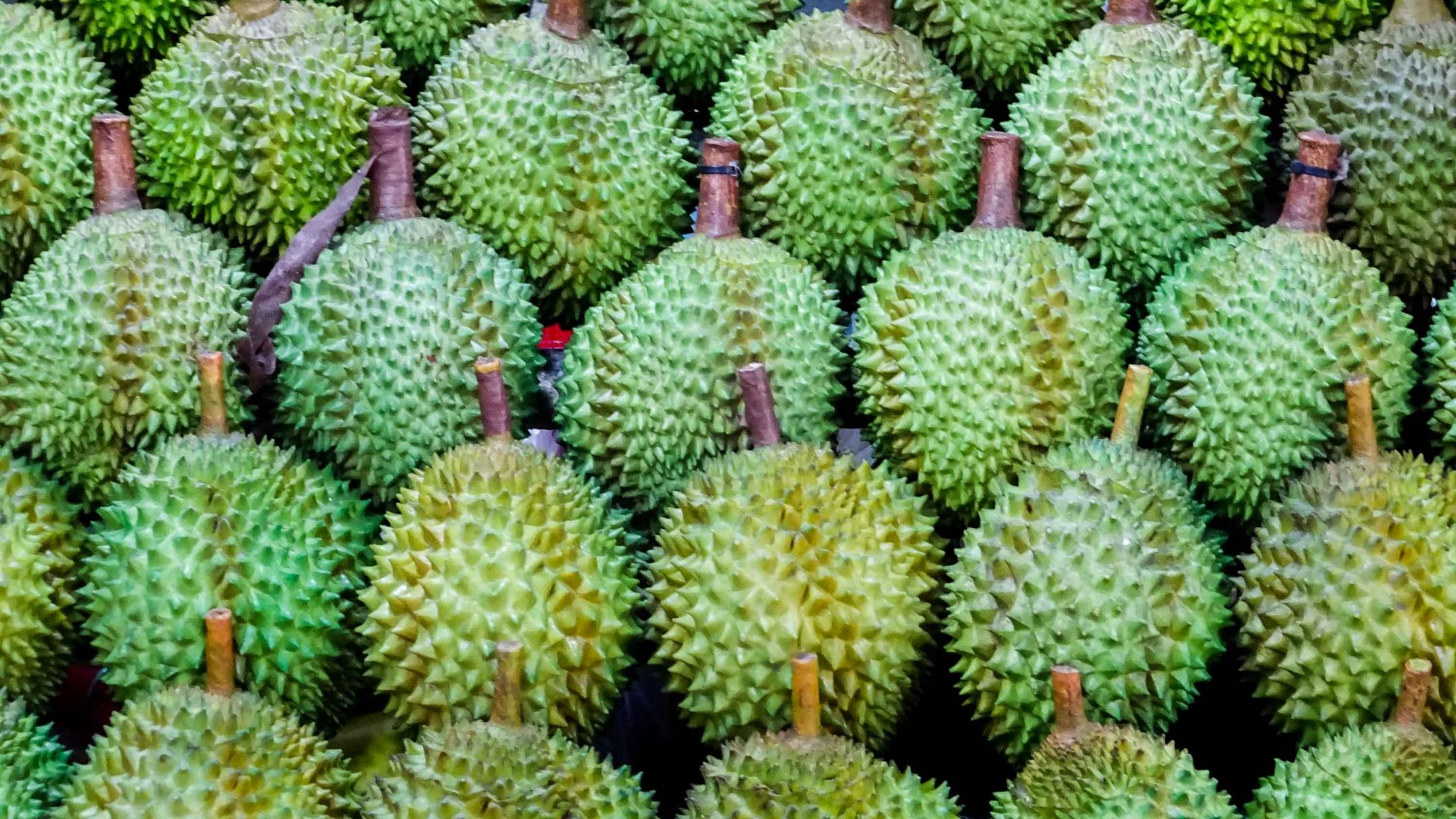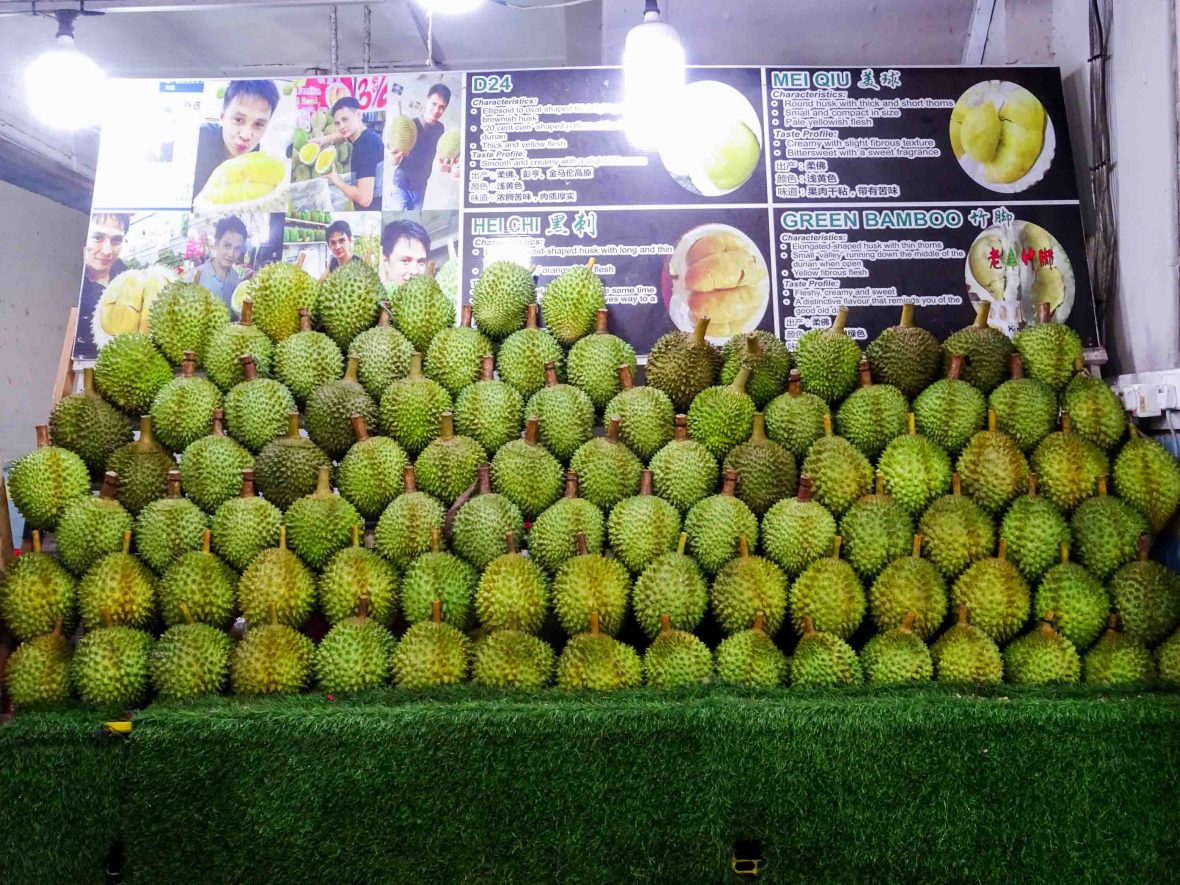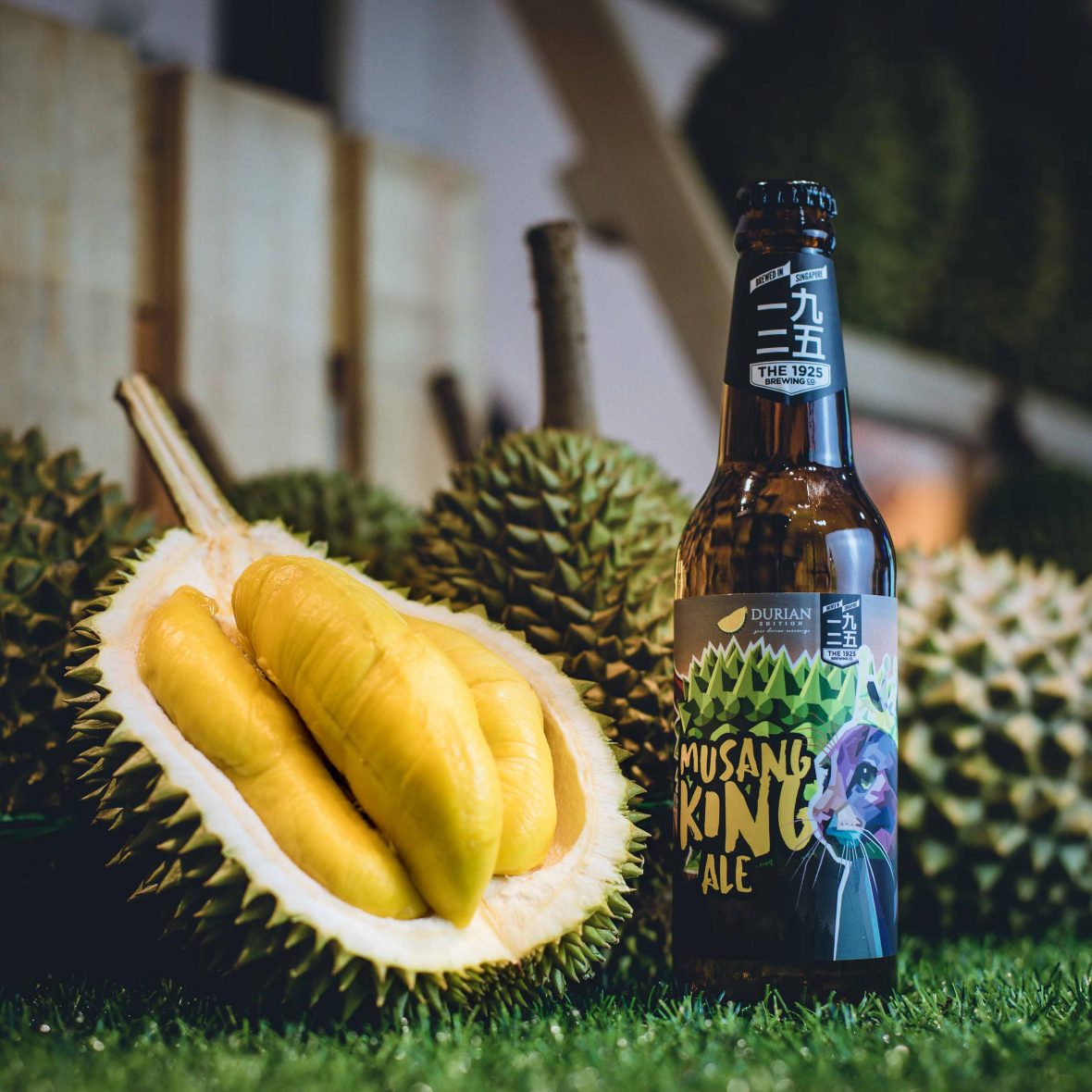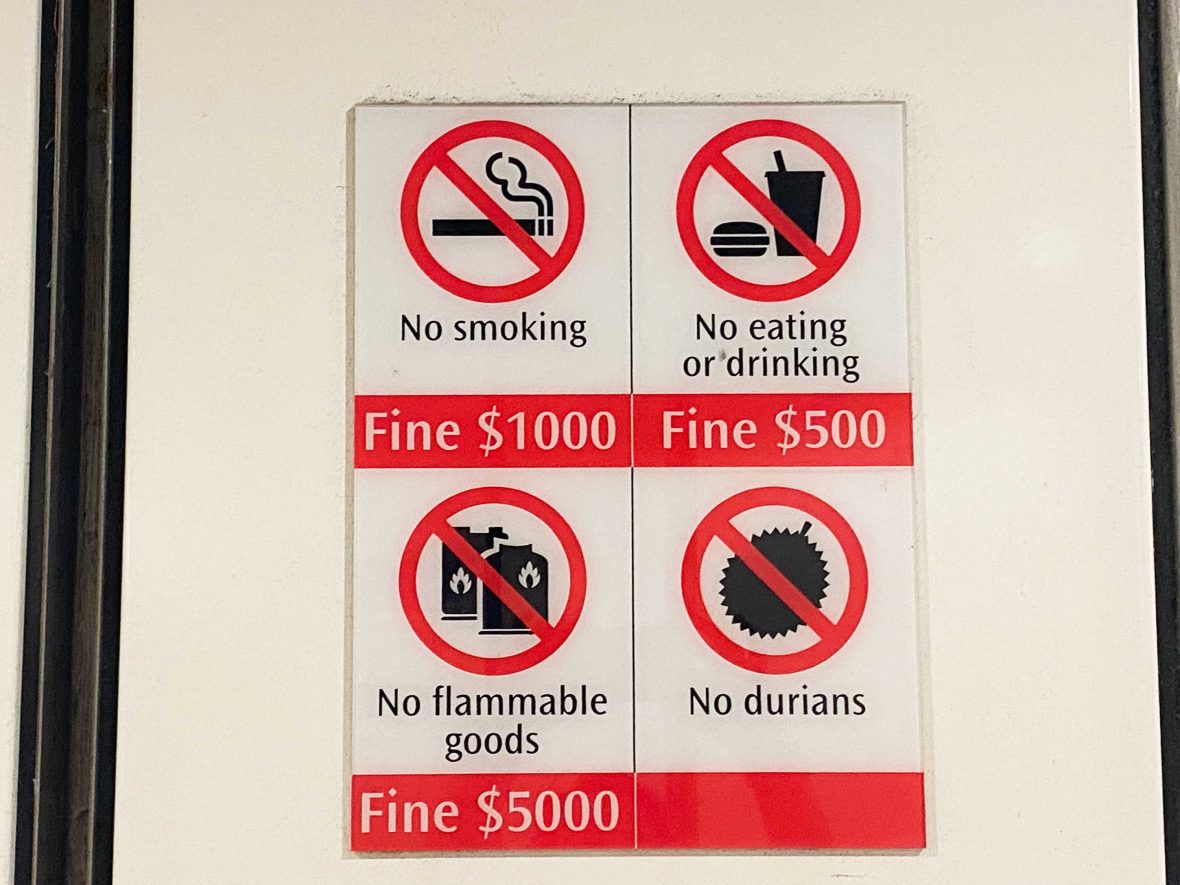
They’re banned on public transport and known for their ‘sweaty feet’ smell, but is the durian’s bad rap unearned? Tamara Hinson explores Singapore’s love affair with the King of Fruits and finds the durian is enjoying something of a renaissance.


They’re banned on public transport and known for their ‘sweaty feet’ smell, but is the durian’s bad rap unearned? Tamara Hinson explores Singapore’s love affair with the King of Fruits and finds the durian is enjoying something of a renaissance.
Durians have it tough. Despite being known as the King of Fruits in Singapore—where more are sold, per capita, than anywhere else—they’re also possibly the stinkiest. Famous for their pungent odor, durians are typically described as being similar to rotting onions or sweaty feet. To compound matters, durians are high maintenance.
Firstly, they’re best eaten within 24 hours of falling from the tree (which happens at peak ripeness). Secondly, they’re tricky to transport. Thirdly, the majority are grown in just three Malaysian states.
In Singapore, only a handful of trees remain, most of which can be found at Singapore Botanic Gardens, where a recent 2022 exhibition, King of Fruits: Ethnobotany and Diversity of the Durians, is a reminder of Singaporeans’ respect for this spikey-shelled fruit.
But now, more than ever, being the top dog in the durian world is a temporary honor at a time when a growing number of hybrid versions are waiting in the wings, ready to steal the crown from the ‘King of Fruits.’

Take the Mao Shan Wang durian, otherwise known as Musang King. In Singapore, its price has increased by 200 percent in recent years. Meanwhile, the Black Thorn durian, a hybrid unveiled at a Malaysian durian competition, has become incredibly popular, despite its high price tag—around S$30 (£17) per kilo.
Right now, increased demand is making it even harder to get hold of a fruit which is generally in short supply. “When the lorry from Malaysia arrives, if we reject 20 per cent of the durians, that’s a great number—sometimes it’s 90 per cent,” says Kelvin Tan, CDG (Chief Durian Guy) at Singapore’s 99 Old Trees, a durian-themed café that receives daily durian deliveries from Malaysia.
RELATED: Hunting for horta: The beloved Cretan pastime of foraging wild greens
Its recent opening generated a major buzz in Singapore—durians are typically eaten at roadside vendors’ plastic tables. Outside, a colorful mural depicts a girl dozing beneath a durian tree, and the café’s door is adorned with a neon sign which reads, “Hold your breath.”
99 Old Trees’ murals and durian-shaped cushions aren’t the only things giving the fruit a popularity boost. The high rejection rate is a silver lining. Although most people come for the fruits themselves, the café’s pastries, prepared by a pastry chef who trained in France, are legendary, and often regarded as more palatable to those who might give durians a wide berth. “We turn overripe durians into pastries,” says Tan, who also sells durian paste to nearby hotels.
Today, more than ever, entrepreneurial Singaporeans are going all-out to boost the fruit’s popularity in innovative ways.
Traditionalists, meanwhile, generally make a beeline for the Goodwood Park Hotel, famous for its durian desserts and annual Durian Fiesta. During the Fiesta, durian fans flock from around the world to sample beautiful durian pastries, most of which are made with a durian known as D24.
This year’s highlights include a durian and strawberry mascarpone filo tart, a durian and banana flambé cake, and a Musang King mousse cake.
Today, more than ever, entrepreneurial Singaporeans are going all-out to boost the fruit’s popularity in innovative ways.
Wesley Han is co-founder of The Refectory on Singapore’s Braddell Road—a slick venue with a restaurant, bar and food hall-style area. He’s also the founder of Durian Edition, a one-stop (online) shop for durian lovers, selling everything from durian desserts to nitro durians, frozen using a nitrogen-based fast freezing process.
RELATED: Against all odds, one man is making honey in the desert of Qatar
An offshoot of Durian Edition is the D.Lab—a kind-of durian think-tank for the fruit’s biggest champions. Previous collaborations have roped in high-profile Singaporeans such as chef Daniel Tay, who created a Burnt Durian Cheesecake. Other D.Lab creations—many of which are available at The Refectory—include a durian purée and oolong tea mooncake.
The durian cheesecake I try at The Refectory is delicious, although I struggle with the intensity of the durian mochi balls, and can’t manage much of the durian paste that comes next. For many people, it’s the custard-like texture that is the biggest deterrent, which is where Wesley’s latest project comes in.
It’s a tub of Musang King paste which he hopes will be a hit with durian devotees who can’t stomach the thought of scooping the flesh straight from the husk. “We’re calling it King in a Cup,” says Han. “We’ve used a top-secret process to break down the fiber, so it’s as close to the real thing as you can get, but without the texture.”
In 2018, an Indonesian airplane was grounded due to concerns about a pungent smell. It turned out to be the two tonnes of durians in the hold.
For me, the highlight is a surprisingly delicious durian beer. “The weird thing is that although it smells of durian, there’s no durian taste,” says Han when describing the Musang King Ale, produced by Singapore-based 1925 Brewing Co.
He’s right, although I can’t help but wish he’d made his second revelation prior to my first gulp: “But when you burp, it will definitely be a durian burp.”

But maybe a “durian burp” isn’t a bad thing. Researchers at Thailand’s University of Chulalongkorn recently discovered that a gel made from durians can prevent bad breath by hindering the spread of bacteria.
This is further proof that not all durian myths are rooted in fact. Although there aren’t official fines for taking durians on public transport in Singapore, they’re technically banned. Signs at MRT stations depict a durian with a line through it, serving as a reminder.
They’re also not banned by any airline, although cramming some into your carry-on is probably a bad idea. In 2018, an Indonesian airplane was grounded due to concerns about a particularly pungent smell. It turned out to be the two tonnes of durians in the hold.

Even in Singapore, certain myths persist. Many of these relate to what Singaporeans describe as the fruit’s “heatiness.”
Because durians are high in calories, eating them can cause a metabolism increase, which in turn can raise body temperature. The belief that alcohol and “heatiness” don’t mix could also explain why durian cocktails have never really taken off—although the Andaz Singapore once offered a Musang King cocktail, made with durian purée and milk.
The Refectory’s Wesley Han decries this particular myth, but reveals that Singaporeans will avoid brandy when eating durians. “It’s like mixing fire with fire!” he says.
But my favorite warning relating to durian consumption comes from the taxi driver whisking me to Changi airport for my flight home: “Eat them, and your first pee will always smell of durians!” Well, I’ll take durian-scented pee over durian burps any day of the week.








Can't find what you're looking for? Try using these tags: